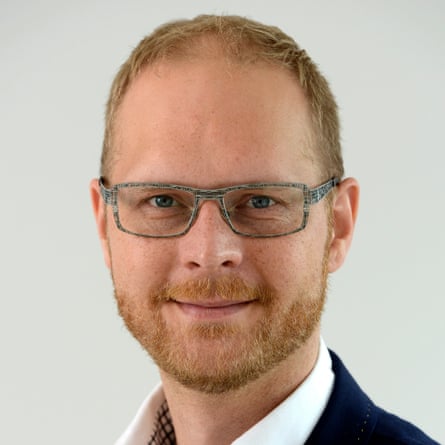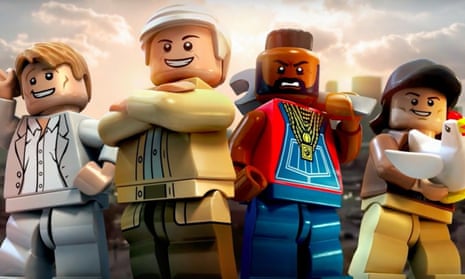There are only three days left to apply for what could be the most coveted job in education: the Lego professor of play, development and learning at the University of Cambridge.
The closing date for applications for the brand new, permanent post is this Friday, 20 January. The successful candidate will not only enjoy all the perks of a typical Cambridge professor – including a job that commands an average salary of £83,981 – he or she will also lead Cambridge’s newly established Centre for Research on Play in Education, Development and Learning (Pedal).
“The value of play is relatively under-researched,” says Prof Anna Vignoles, interim director of Pedal and a member of Cambridge University’s faculty of education. “You have people who are claiming that it enhances learning, that it’s important, that it’s good for children’s wellbeing. All of that might be true, but actually there’s remarkably little evidence for that. The aim of the Pedal centre is to conduct rigorous research into the importance of play and how playful learning can be used to improve students’ outcomes.”
Although the Lego Foundation, which owns 25% of the Lego business, will have no say over who is appointed, it is committed to funding the role in perpetuity and has already made a £4m endowment to the university. Of this, £2.5m has been put aside for the professorship. The remaining £1.5m is going to the Pedal centre, whose agenda will, in the future, be determined by the interests of the new professor.
The university is planning to offer the role to an academic who specialises in educational psychology, to enable the centre to step up its research capabilities in this field. “Children are now increasingly accessing early-years provision at very young ages,” says Vignoles. “There are a number of scholars who are working on interesting aspects of that in developmental psychology. We’re confident that we’ll attract an outstanding scholar.”
The Lego Foundation is hoping for a candidate with a “childlike mindset”: “an academic who is playful, extremely curious, open-minded, imaginative and creative – someone who can think of new ways of doing research and work across different disciplines,” says Bo Stjerne Thomsen, global head of research for the Lego Foundation.

The foundation believes play has a critical role for children, particularly in high-quality learning. “Play should be part of education,” says Stjerne Thomsen. “What we want is to get the UK government to encourage more playful learning in schools, rather than testing. If children are being taught with standardised assessments and results, those children will expect to receive assignments and be led towards pre-defined goals for the rest of their lives.
“But the skills you need now as an adult are collaboration, problem solving and coming up with ideas. In that sense, play is critical. You use your imagination to plan things, to predict outcomes, to understand how to solve a problem by looking at it from different perspectives.
“For us, this is a unique opportunity to build research and interventions that can inform government policy, and also teachers – who are very good at teaching, but need other perspectives on the curriculum.”
Vignoles, though, emphasises that the professor will not be expected to become an advocate for play to policymakers. “This is a research and teaching role, not an advocacy role. We don’t know what the impact of play is on particular outcomes. We’re going into this to investigate it.”
And Stjerne Thomsen says: “We hope the Lego professor will speak to the needs that exist in education right now – and we can point to what the attitudes to play are, how teachers teach and what parents expect from education. New research studies may fulfill gaps in academia, but we help our academic partners to address the question of how it would make sense for a government or teacher to use that research.”
The Lego Foundation chose Cambridge because of its interdisciplinary approach to play research and its expertise and credibility when communicating research to policymakers and practitioners, he says. “There is no department of play at any university and no institution takes responsibility for following the play literature and looking at interventions and outcomes in education. There is a lot of work even at the baseline for an academic institution to say what studies already exist and it’s very difficult to set up good studies.”
Academics have under-researched the potential value of play because the line between play, teaching and learning is hard to pin down, Vignoles says. “Using the latest technology to carry out research and collect data will be important. One of the most exciting projects the centre is working on at the moment is looking at outdoor play using GPS technology. The aim is to understand how children interact with their peers when they’re left in a playground situation, and how they congregate in groups and play. It’s an innovative way of studying what children are doing.”
It is the first professor of play in the world. “It needed to be a professorship because we have high expectations with regard to the standard of the research agenda,” says Stjerne Thomsen. “We wanted to attract someone who will build a whole team around him or her that can define studies in this area, someone who will be world-renowned for play.”
Applicants do not need to already hold a professorship. “There may be people applying for this post for whom this will be their first chair – it’s more about what they can bring in terms of their research,” says Vignoles. Applications close on 20 January.

Comments (…)
Sign in or create your Guardian account to join the discussion